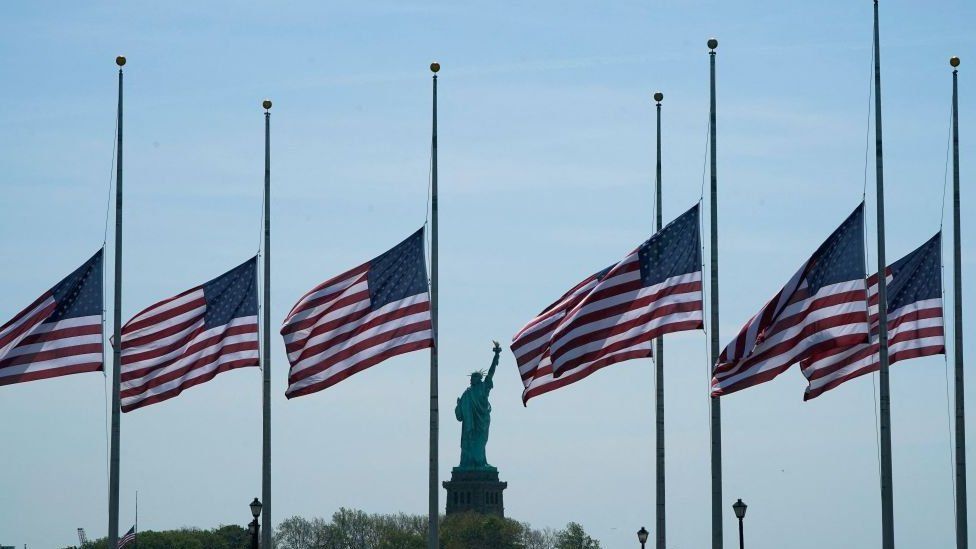Texas shooting: America's gun control debate that never goes away
- Published

This tragedy has reignited the debate over gun control in the US. But realistically, it is unlikely to result in significant reform. The argument over guns has simply become too politically divisive and culturally entrenched to allow for meaningful change.
It is important to remember that guns are normal in many parts of America. They are not seen as exceptional or frightening as they do to outsiders. They are a part of everyday life.
American gun owners - and there are an estimated 80 million of them - see their firearms as protection: a way to defend their own freedoms and property.
In a country where there is a real prospect of an armed criminal breaking into your home or assaulting you on the street, many consider carrying one to be a sensible precaution.
Guns are so ubiquitous in America that no one will be able to get them out of the hands of felons. And so the argument goes: the good guys should have them too.
We all know that the right to bear arms is protected by the Second Amendment of the US Constitution. What is less clear to those on the outside is why a document written nearly 250 years ago in response to a revolutionary war still has such resonance in 2022.
Freedom and the right to defend yourself is fundamental not just to America's origin story - but to how many in America think about their country and their values today.
Some of the most vociferous arguments in favour of guns are made by the rich and powerful National Rifle Association (NRA) who want to defend their supporters' profits. But many of the arguments come from ordinary citizens too.
For many, your right to carry a gun is considered as fundamental as your right to free speech. Banning or restricting guns is viewed as a breach of your rights as an American.
Those rights have been up for debate before, especially in the wake of tragedies like the one in Texas.
Back in 2012 a lone gunman rampaged through Sandy Hook primary school - killing six adults and 20 children. Afterwards there was a groundswell of support for gun control similar to what we're seeing now.
President Barack Obama vowed to do everything in his power to act and his Democrats proposed US-wide laws banning specific models of firearms and enhancing background checks.
Some of those measures received Republican support - but it was never enough to make it through Congress and into law.
The families of the Sandy Hook dead were so frustrated by the failure of gun reform that they took matters into their own hands - choosing to directly sue the manufacturer of the AR-15 rifle used in the 2012 attack.
Earlier this year Remington Arms settled with nine of the families for $73m (£53.9m), which makes more of these lawsuits likely in the future.
Huge numbers of Americans are sickened by the high rates of gun violence in their country and calls today are louder to at least tighten restrictions on gun ownership.
Reform advocates talk about other types of freedom - like a child's right to go to school without fear of being shot. All in a country where guns are now the leading cause of death amongst children and teens.
The numbers are staggering. More than 4,300 under-18s died from firearm-related injuries in 2020. By comparison, some 50 American police officers died from gunfire injuries in the same year.
But do not expect the kind of political response provoked in 1996 by the Dunblane massacre in the UK - which MPs responded to by effectively outlawing all privately-owned handguns.
Arguments will rage across US cable shows and on social media in the coming days over who should be allowed to buy guns and what kinds of weapons they are permitted - but not over their right to bear arms.
Related Topics
- Published26 May 2022
- Published26 May 2022